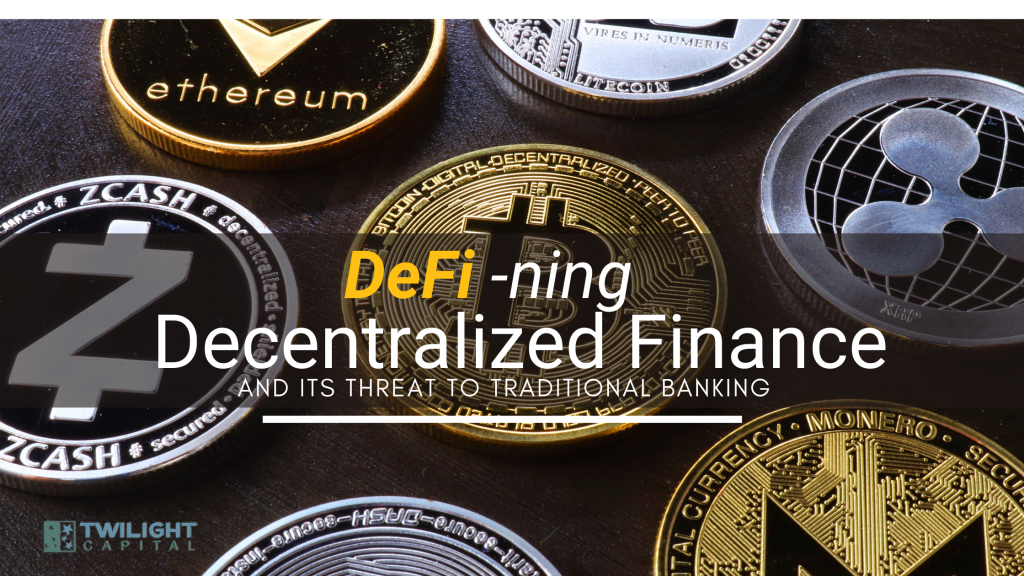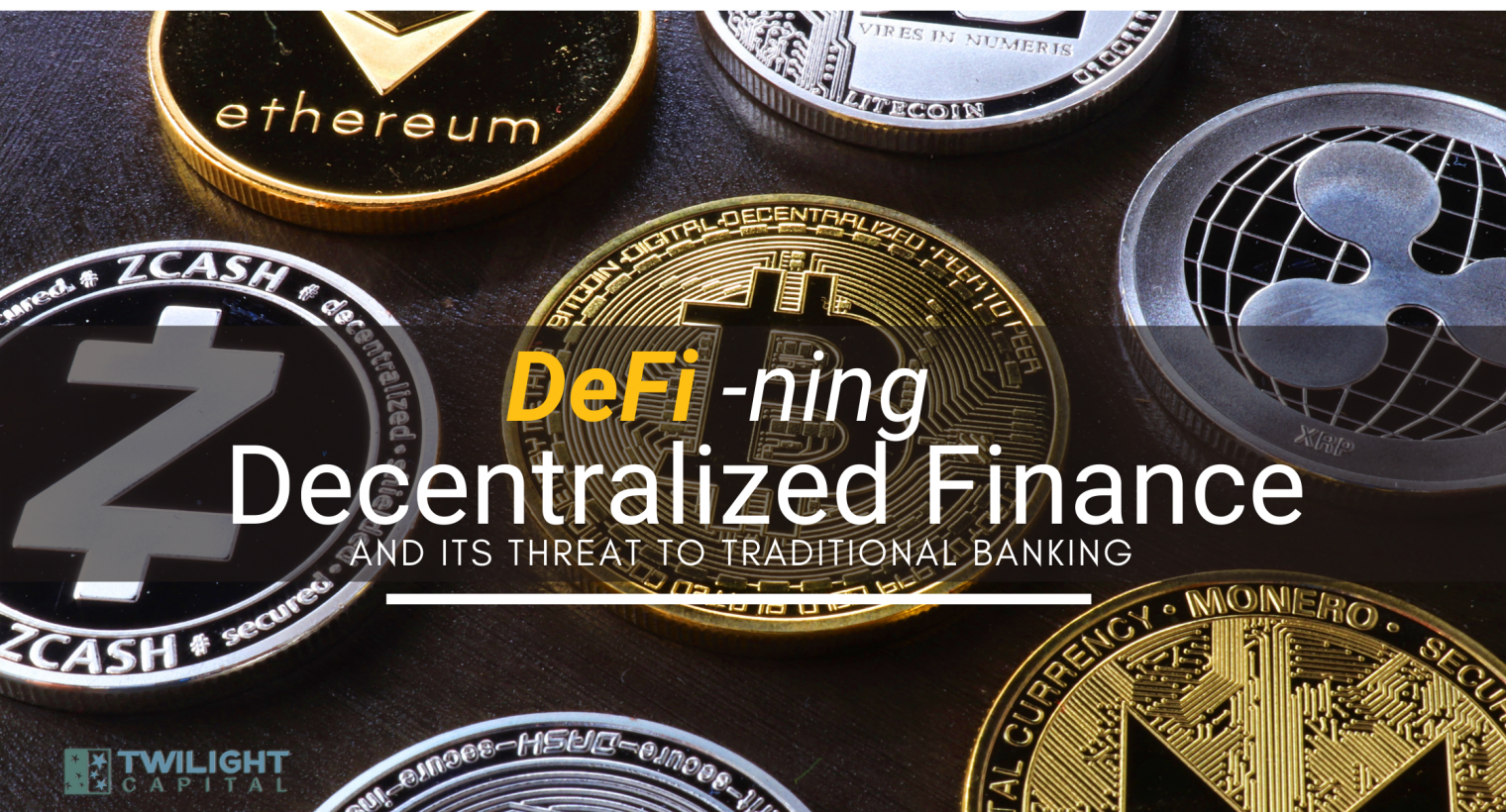Decentralized finance, widely known as DeFi, have you heard about this collective term when talking about cryptocurrency investment? As our lives become more and more immersed in technology, certain traditions are being done away with. Much like every industry out there, banking is embracing technology. From online banking, we have come a long way, which marked the beginning of the technological revolution in banking. Today, cryptocurrencies such as Bitcoin or Ethereum are more a part of the norm than ever before. As we embrace cryptocurrency, a new way of banking has come to light and is likely here to stay.
Defi Explained and Its Threat to Traditional Banking
The Rising Potential of DeFi
Decentralized finance manages financial transactions through the use of cryptocurrency and blockchain technology. This new way of financial management is replacing traditional, centralized banking with peer-to-peer relationships to democratize finance. Through DeFi, consumers can gain a full spectrum on every aspect of financing. This includes everyday banking, loans, mortgages, trading, and financial contracts.
DeFi is set to change the way we handle our banking and financial circumstances by challenging the centralized financial system. The centralized system we know today is riddled with governing bodies, gatekeepers, and the financial middlemen that regular consumers have to go through to gain access to even the most basic financial services. From loans, mortgages, and trading, consumers must always deal with the middlemen such as the banks and lenders.

Decentralized Finance vs. Traditional Banking
With DeFi, the middleman is cut out of the equation, giving consumers revolutionary access to financial services. Defi will take power away from the middlemen and give it back to the consumers. By taking out the third party and opting for decentralized blockchain technology such as smart contracts, users will have clear and transparent control over how their finances are handled and where their money is going.
When consumers have the option to have more explicit control over their money and assets without having to deal with the middlemen, we’re likely to see them in favor of DeFi over traditional banking. As this rise of cryptocurrency continues, the end of conventional banking is becoming more inevitable. Although DeFi can seem complicated to the average person, it can make financial transactions less expensive and more secure. For others who are not granted to set up a bank account or employ financial services can make use of DeFi technology. Over the next decade, we are likely to see the fall of traditional banking and the rise of decentralized finance.
Decentralized finance defined as a blockchain-based form of finance will drive many to know its advantages and maximize its potential. However, applying this finance technology can be risky for those who do not have enough knowledge of it. Therefore, it is best to scale the pros and cons and see how this finance technology works. Understanding the immutability of its functionalities ensures the integrity of DeFi applications in carrying out financial transactions. Its transparency reveals integrity and the applications it offers to provide options for the users to control moving their assets more profitably.
Blockchain is making giant steps and preparing the financial markets into a new world.
Source:
DeFi Explained and Its Threat to Traditional Banking
About the Author:
Nikolas Perrault
Nikolas Perrault is a Chartered Financial Analyst at the helm of Twilight Capital, a capital market advisory consulting firm based in Montreal, which he formed in 2008.
Twilight is a privately held company with significant experience in going-public transactions, spin-offs, capital markets, mergers and acquisitions (“M&A”), and all matters related thereto.
Twilight’s primary focus is the mineral resource sector, where it has developed over the last 25 years an extensive international network of strategic relationships. Mr. Perrault himself has extensive international experience in this sector.
What Twilight Capital Can Do For You?


